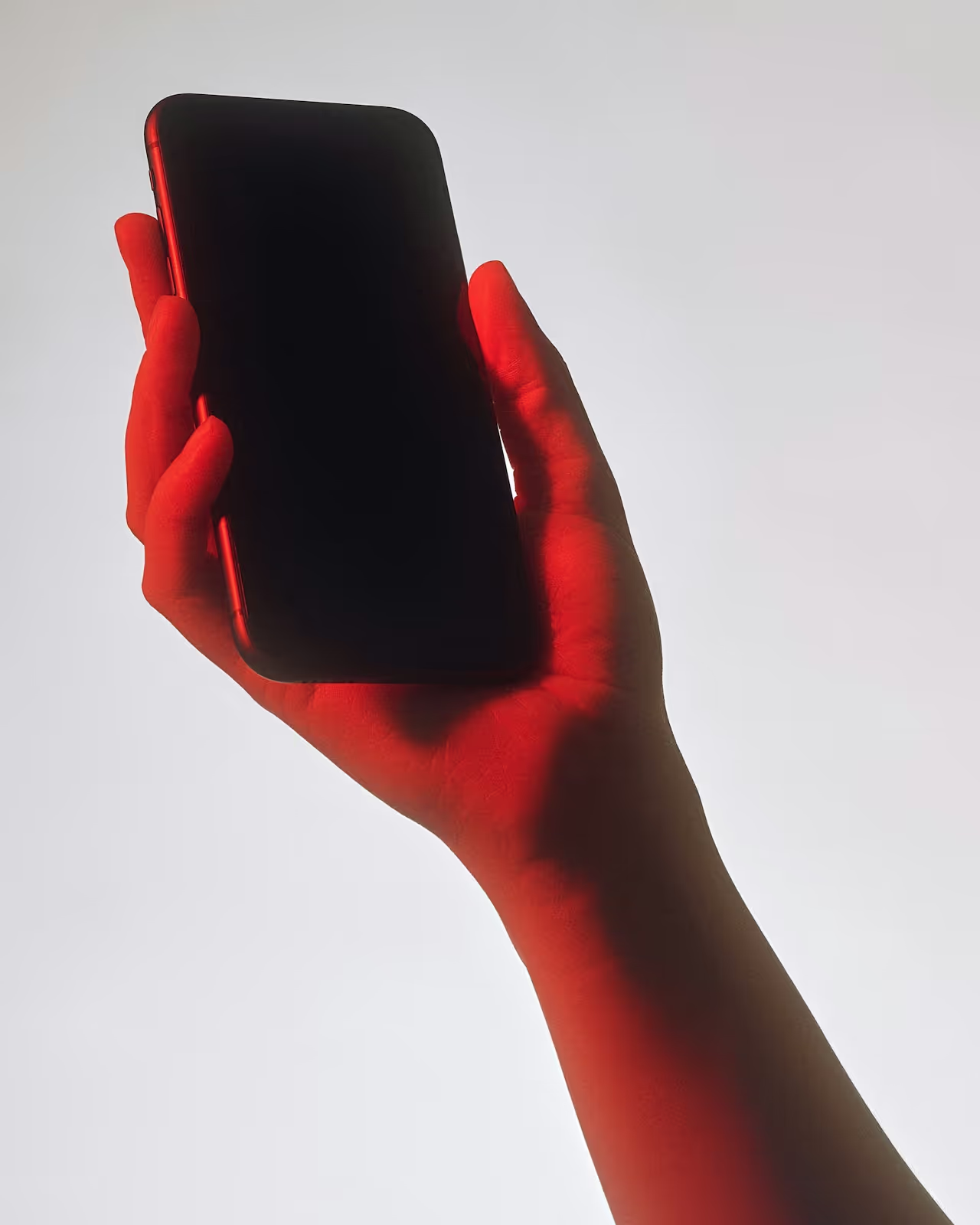Software-as-a-Service companies face distinct branding challenges that differentiate them from traditional businesses. Your product exists entirely in digital form, often solving complex technical problems for sophisticated buyers. You're competing in crowded categories where dozens of alternatives claim similar capabilities. Your customers evaluate you primarily through digital touchpoints before ever speaking with sales representatives.
These realities require branding approaches specifically adapted to SaaS business models, buying cycles, and market dynamics. Generic branding frameworks developed for consumer products or traditional services rarely translate effectively. The best SaaS branding agencies understand these nuances and have developed specialized expertise serving software companies.
This guide identifies agencies proven to create effective brands for SaaS startups. Top SaaS branding agencies for startups combine strategic positioning with visual identity development and understand how branding supports software companies throughout customer acquisition, retention, and expansion. They’ve demonstrated their ability to help SaaS companies differentiate in competitive markets and communicate complex value clearly.
Why SaaS Startups Need Specialized Branding
Before evaluating specific agencies, understanding what makes SaaS branding different from other contexts helps frame what capabilities matter most when selecting partners.
Complex value propositions require unusual clarity in communication. B2B SaaS branding often solve sophisticated problems through technical capabilities that are difficult to explain simply. Effective branding distills complexity into clear positioning that resonates with target buyers without oversimplifying to the point of meaninglessness.
Digital-first brand expression matters disproportionately for SaaS. Your brand exists primarily in digital contexts—websites, product interfaces, email communications, and digital advertising. Print applications are minimal or nonexistent. Agencies must understand how brands function in these dynamic, interactive environments rather than optimizing for static applications.
Product-led growth models change how branding operates. When customers sign up for trials and evaluate products directly, your brand needs to work within the product experience itself, not just marketing materials. The distinction between product design and brand design blurs in ways that require integrated thinking.
Long sales cycles and multiple stakeholders complicate messaging. Enterprise SaaS often involves months-long evaluations with technical buyers, business buyers, and executive decision-makers all influencing decisions. Branding must serve these different audiences simultaneously while maintaining coherence.
Rapid evolution and iteration are normal for SaaS companies. You add features frequently, expand to new markets, and refine positioning as you learn. Brand systems need flexibility to accommodate this evolution without requiring complete redesigns every year.
1. Ramotion
Ramotion has built their entire practice around technology companies with particular strength in SaaS branding. Their portfolio includes work for startups and established software companies demonstrating consistent ability to create brands that communicate technical value clearly.
The agency's process begins with deep understanding of product capabilities, target audiences, and competitive landscapes. They invest heavily in comprehending what software actually does and how it creates value before developing positioning or visual expression. This foundation prevents superficial branding disconnected from product reality.
Ramotion's visual work demonstrates strong grasp of how brands function in digital product contexts. They design identity systems that work seamlessly across marketing sites and product interfaces. This integration ensures brand consistency whether customers encounter you through advertising or within the product itself.
Their experience with SaaS specifically means they understand common challenges around pricing page design, feature communication, integration displays, and customer proof presentation. This category knowledge accelerates projects and produces work optimized for SaaS-specific requirements.
2. Metabrand
Metabrand specializes in branding for SaaS companies, bringing focused expertise to this specific market segment. Their concentration on software businesses creates deep understanding of what works for companies selling technical products to sophisticated buyers.
The studio combines strategic positioning with complete brand system development and web design implementation. This comprehensive approach ensures brands are built on solid strategic foundations and implemented effectively in the primary touchpoint where customers evaluate you—your website.
Metabrand's process is optimized for SaaS company timelines and budgets. They deliver professional branding that positions software companies for growth without extended timelines or premium budgets that make traditional agencies inaccessible. For venture-backed SaaS startups, this efficiency makes strategic branding accessible during critical early stages.
Their work demonstrates understanding of how SaaS brands need to communicate technical sophistication while remaining accessible. They balance credibility with clarity, creating brands that appeal to technical evaluators without alienating business decision-makers. This equilibrium serves complex B2B software sales effectively.
3. MetaLab
MetaLab works extensively with SaaS companies on both branding and product design. Their portfolio includes Slack, Coinbase, and other prominent software companies. This dual focus on brand and product creates unusual integration between these typically separate disciplines.
The agency's strength lies in understanding how brand and product experience need to work together cohesively. They don't treat brand identity as separate from product interface design. This integration produces brands that feel consistent whether customers encounter them through marketing or product usage.
MetaLab's process emphasizes user research and testing throughout development. They validate positioning and design decisions with actual target users rather than relying purely on client or agency preferences. This research foundation produces brands built on evidence rather than assumptions.
Their technical sophistication allows them to design for complex product interfaces while maintaining brand consistency. For SaaS companies with sophisticated products, this ability to handle complexity without sacrificing clarity is valuable.
4. Collins
Collins has worked with numerous SaaS companies including Stripe, Dropbox, and Airtable. Their experience with high-growth software businesses demonstrates capability serving companies at various stages from startup through established market leaders.
The agency's approach integrates strategy, design, and messaging into unified brand experiences. They develop comprehensive brand systems that include positioning, visual identity, voice and tone, and implementation across all touchpoints. This completeness serves SaaS companies needing brand coherence across complex customer journeys.
Collins' collaborative process involves client teams deeply throughout development. This partnership approach ensures brand work stays connected to business strategy and product roadmaps rather than existing as isolated creative exercise. For SaaS companies where product and brand must align closely, this integration produces better outcomes.
Their work demonstrates sophisticated understanding of how to communicate complex technical capabilities clearly. They excel at positioning that differentiates software companies in crowded categories through specific, defensible claims rather than generic assertions.
5. Ueno
Ueno combines brand work with digital product design serving technology companies including SaaS businesses. Their portfolio demonstrates capability creating brands that work beautifully in digital contexts while supporting business objectives.
The agency's strength lies in creating comprehensive digital brand experiences. They design websites, product interfaces, and marketing materials with consistent visual language and interaction patterns. This systematization ensures brand coherence across all digital touchpoints where SaaS brands primarily exist.
Ueno's work is characterized by bold visual confidence and meticulous attention to interaction detail. Their sites and products feel premium through countless micro-decisions about animation, transitions, and responsive behavior. For SaaS companies positioning as premium or innovative solutions, this craft quality supports market positioning.
Their technical capabilities extend to building functional prototypes and working products, not just static designs. This implementation capability ensures designs are technically feasible and perform well, preventing disconnect between design ambition and technical reality.
6. Character
Character focuses on brand strategy and identity for technology companies with significant SaaS experience. Their process emphasizes strategic foundation before visual development, ensuring brands are built on clear positioning rather than aesthetic preferences alone.
The agency invests heavily in competitive analysis, customer research, and market positioning before design work begins. This strategic rigor produces brands that differentiate meaningfully in crowded software categories. They help SaaS companies articulate specific value propositions that resonate with target buyers.
Character's visual work tends toward distinctive, confident expressions that help software companies stand out. They're comfortable with boldness that creates strong first impressions—valuable for SaaS companies needing to break through cluttered markets and get noticed by potential customers.
Their experience with growth-stage companies means they understand how brands need to scale. They create systems flexible enough to accommodate new features, expanded target markets, and evolved positioning without requiring complete redesigns.
7. Moving Brands
Moving Brands has extensive experience branding technology companies including numerous SaaS businesses. Their portfolio includes work for companies at various stages from startups through established enterprises navigating transformation.
The agency's strategic capabilities are particularly strong, with deep research and positioning work establishing clear brand foundations. They map competitive landscapes, identify differentiation opportunities, and develop messaging architectures that serve complex B2B software sales processes.
Moving Brands creates flexible identity systems that accommodate evolution as SaaS companies develop. Their brand systems often include dynamic elements or systematic variations that adapt to different contexts while maintaining coherence. This flexibility serves software companies operating in rapidly changing markets.
Their global presence and scale allow them to support SaaS companies expanding internationally. They understand how brands need to adapt for different markets while maintaining core identity. For software companies with global ambitions, this international capability is valuable.
Essential Elements of Effective SaaS Branding
Understanding what makes SaaS branding work helps evaluate agency proposals and ensure engagements address the right priorities rather than generic branding activities.
Clear positioning that differentiates specifically matters more for SaaS than almost any other category. With dozens or hundreds of competitors claiming similar capabilities, vague positioning like "powerful," "easy to use," or "innovative" communicates nothing. Effective positioning articulates specific, defensible differences that influence buyer decisions.
Value communication that connects features to business outcomes helps buyers understand why your software matters. Technical buyers care about capabilities, but business buyers need to understand ROI. Branding must bridge these perspectives, making technical sophistication accessible while demonstrating business value clearly.
Trust building through design quality, social proof, and brand consistency affects conversion significantly for SaaS. Buyers evaluating software need confidence that solutions will work reliably and companies will remain viable. Professional branding creates credibility that supports these trust requirements.
Scalable systems that maintain consistency across expanding applications prevent brand chaos as usage grows. SaaS companies quickly need brand expression across many contexts—websites, product interfaces, documentation, support materials, sales collateral, and more. Systems designed for this diversity prevent fragmentation.
Integration between brand and product design ensures coherent experiences as customers move from marketing into product usage. Disconnects between these experiences create confusion and erode trust. Agencies understanding both brand and product design produce more integrated results.
What to Expect from SaaS Branding Engagements
Understanding typical processes and deliverables helps set realistic expectations when working with agencies on SaaS branding projects.
Discovery phases explore your product, customers, competitors, and business model. Agencies should invest time understanding what your software actually does, how it creates value, and who buys it. Expect one to three weeks of research, interviews, and analysis before strategic work begins.
Strategic development establishes positioning, target audience definition, messaging architecture, and brand personality. Agencies should document these foundations clearly through strategy documents or frameworks. This strategic work serves as criteria for evaluating creative directions later.
Visual identity development creates logos, color systems, typography, imagery approaches, and core brand elements. For SaaS companies, this work should explicitly consider digital applications and how identity elements function at various scales and contexts. Expect three to five weeks for initial concepts and refinement.
Brand system development extends core identity into comprehensive guidelines covering all necessary applications. For SaaS, this typically includes marketing site design, product interface elements, documentation styling, and sales collateral templates. Complete systems enable consistent implementation across all touchpoints.
Website design and development implements branding in the primary customer evaluation touchpoint. Many SaaS branding engagements include website work because it's the most important brand application. Expect four to eight weeks for design and development depending on site complexity.
Total timeline from kickoff to completion typically spans eight to fourteen weeks for comprehensive SaaS branding engagements. Accelerated timelines are possible but often compromise strategic depth or system completeness. Extended timelines aren't necessarily better—efficient agencies deliver excellent work within reasonable timeframes.
Selecting the Right Agency for Your SaaS Company
Choosing from these exceptional agencies requires matching capabilities to your specific situation rather than selecting based purely on portfolio impressiveness.
Budget constraints influence options significantly. Agencies like Metabrand optimize for startup and growth-stage SaaS budgets. Premium agencies like Ueno or Collins command higher fees reflecting senior talent and extensive processes. Be realistic about available investment and evaluate agencies operating at appropriate levels.
Company stage affects which agencies serve you best. Early-stage SaaS companies need efficient processes and accessible pricing. Established software companies can invest in comprehensive engagements with longer timelines. Match agency typical client profiles to your actual situation.
Internal capabilities determine what external support you need. If you have strong product design but need strategic positioning and marketing design, agencies with strategic strength matter most. If product and positioning are clear but marketing execution is weak, implementation-focused agencies work better.
Technical complexity of your product influences agency selection. Highly technical SaaS products require agencies capable of understanding sophisticated functionality and communicating it clearly. Simpler products can work with broader creative agencies without specialized technical fluency.
Market maturity and competitive intensity affect branding requirements. Crowded categories with many alternatives require stronger differentiation than emerging categories with few competitors. Agencies experienced in competitive positioning serve saturated markets more effectively.
Choosing the right SaaS branding agency creates foundation for brands that drive customer acquisition and support business growth. The best partners understand software business models, communicate technical value clearly, and create systems that scale as companies evolve.
Get a free quote from Metabrand.









